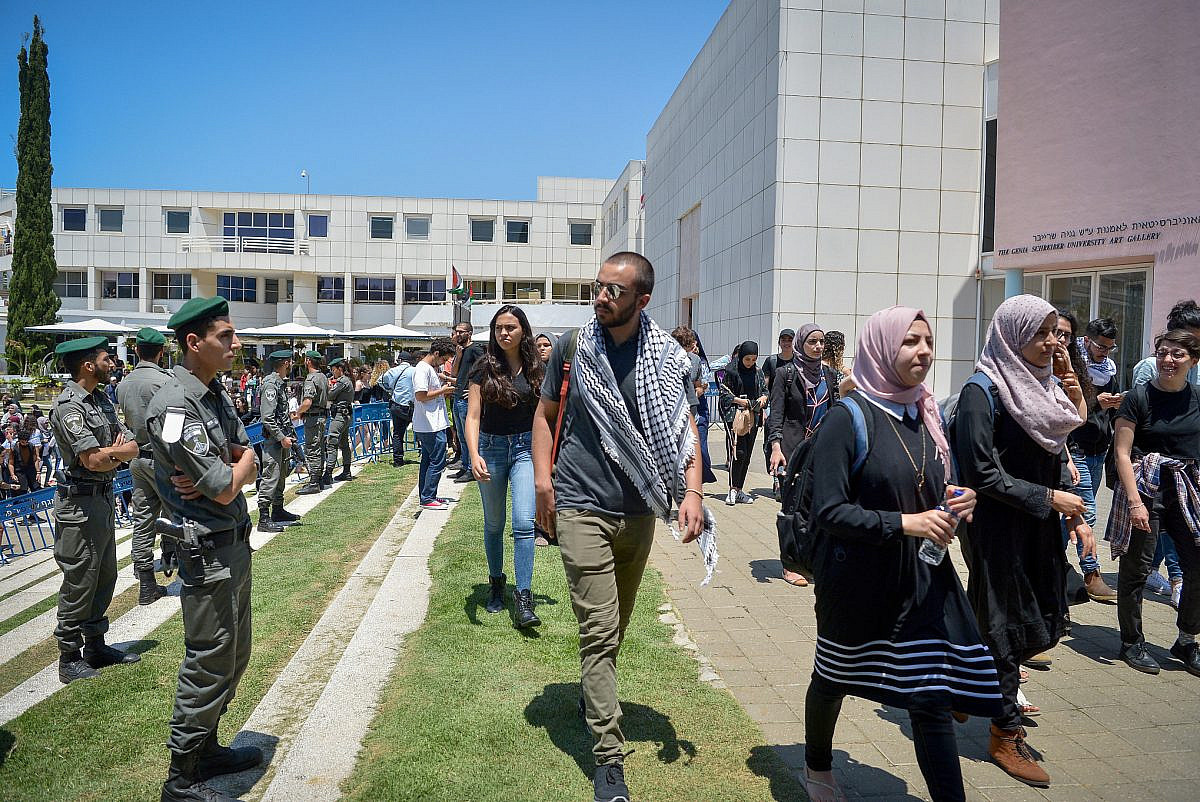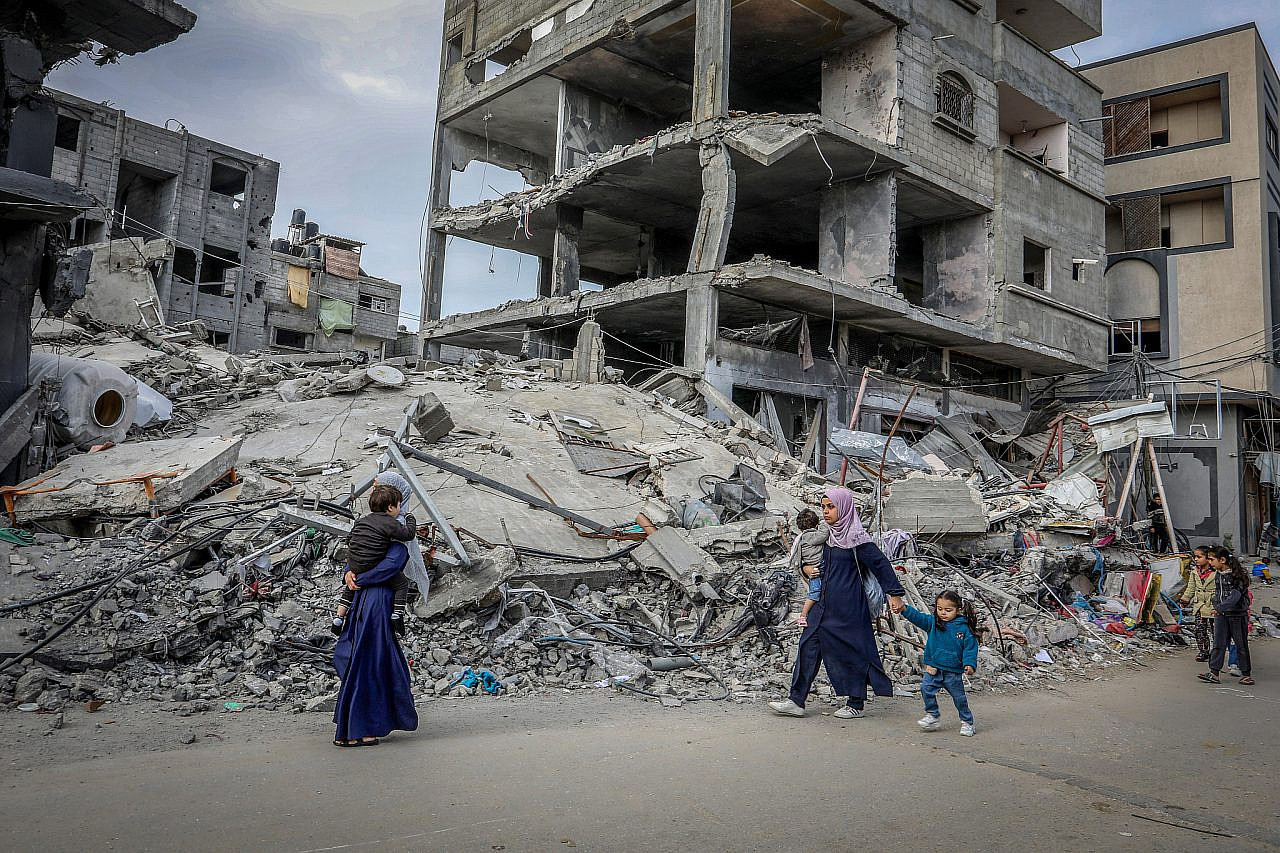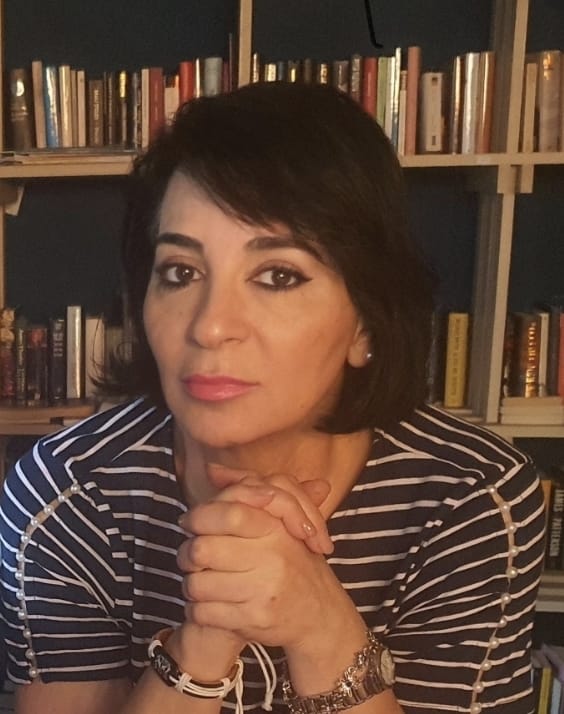On Oct. 8, the day after Hamas launched a large-scale surprise attack on southern Israel, Bayan Khatib posted a video on Instagram showing a skillet of shakshuka that she had prepared. The 23-year-old Palestinian citizen of Israel, a student at Haifa’s Technion Institute and a self-confessed bad cook, proudly captioned the post, “Soon we’ll eat victory shakshuka,” alongside an emoji of a Palestinian flag.
Construing her use of the flag and the word “victory” as signaling support for Hamas, Khatib’s fellow students widely circulated the post and demanded that she be punished — both by the university and by state authorities.
The complaints were taken seriously. On Oct. 25, Khatib was arrested on suspicion of incitement. She spent one night in jail, sharing a cell meant for four people with eight other Palestinian women, all of them arrested after Jewish-Israeli colleagues reported them to the police for sedition. Khatib was released to house arrest the following day.
A complaint was also filed against Khatib at the Technion, and her hearing was held on Nov. 9. Despite seeking assistance from professors at the university by email and phone calls, Khatib said she received no response. She remains suspended from her studies while disciplinary proceedings against her are ongoing.
Khatib told +972 that she has never felt so at risk for her identity as she does now. “Simply being Palestinian and displaying symbols of my heritage has become a cause for suspicion, making me feel inherently guilty,” she said. “The allegations against me are absurd — merely over a video of shakshuka.”
Palestinian students and faculty have long encountered racism, discrimination, and harassment at Israeli universities and colleges, but the weeks since October 7 have seen a significant spike in cases. A crackdown on freedom of expression by Israeli authorities — which is also impacting left-wing Israeli Jews — has created an atmosphere of fear that seeks to silence any dissent against the Israeli army’s ongoing bombardment of the Gaza Strip.
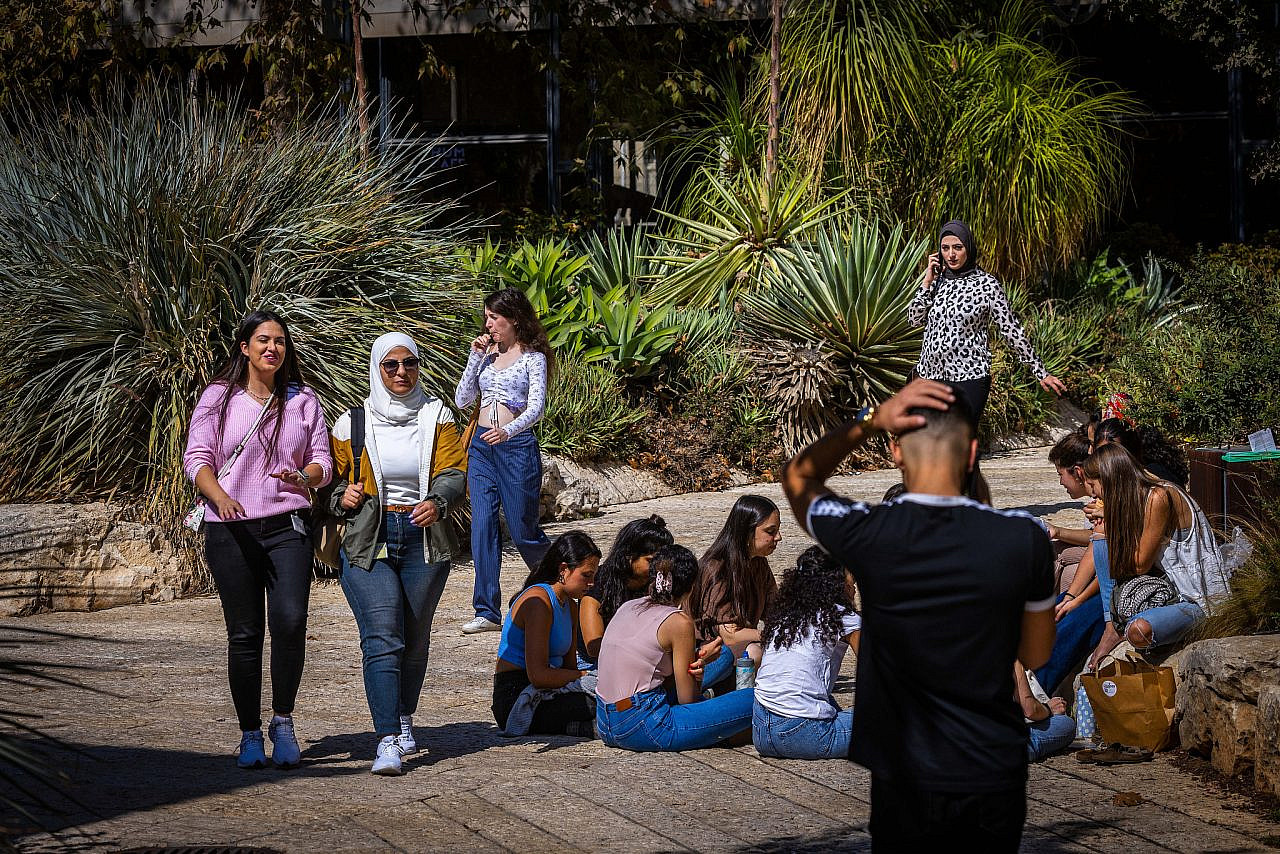
According to the Union of Arab Students, approximately 160 Palestinians studying at Israeli universities and colleges have faced disciplinary proceedings since October 7, accused of supporting terror, supporting terrorist organizations, or incitement to terrorism.
The Haifa-based Palestinian legal center Adalah, meanwhile, reported that it has been approached by 113 Arab students at 33 different Israeli academic institutions in that time, all of them seeking legal support. Adalah further notes that in nearly half of the cases it is aware of, students were temporarily suspended before disciplinary proceedings had even started; in 8 cases, students were expelled without a hearing.
The Union reports that Arab students are being arrested simply for writing or “liking” seemingly innocuous posts on social media. For example, the arrests of four students at the Western Galilee College on Nov. 19, the Union said, were conducted in a particularly “barbaric” manner, intended to humiliate them and perpetuate a policy of intimidation.
Perhaps more frightening still has been the harassment of Palestinian students by their Jewish peers. Shortly after the war began, the National Union of Israeli Students called for the immediate suspension of anyone who expresses solidarity with Hamas’ attacks and encouraged students to anonymously report those suspected of supporting terror.
This call came frighteningly close to physical violence. On Oct. 28, a mob of extremist Jewish Israelis gathered outside the dormitories of Arab students at Netanya Academic College, chanting “Death to Arabs.” Police had to block the crowd from breaking into the building, and the threatened students were eventually evacuated to safety.
Together with Adalah, the Union of Arab Students has pressed for an investigation into the attack at Netanya College. It is also calling on the heads of Israeli universities to provide enhanced protection for Palestinian students and reinstate those who have been suspended, while encouraging progressive Arab and Jewish lecturers to intervene against unjustified punitive action.
The Union has also made the unusual step of seeking outside intervention, reaching out to foreign universities and donors affiliated with Israeli institutions and urging them to support Palestinian students, as well as asking the EU to reevaluate its academic collaboration with Israel’s Education Ministry.
Toxicity and persecution
The persecution of Palestinians on Israeli campuses extends beyond students, with faculty members also facing similar charges. On Oct. 9, 25 faculty members at the University of Haifa — including the vice rector — sent a private letter to the university’s rector, Professor Gur Alroey, raising concerns about the suspension of five students the previous day; the university had failed, they argued, to follow its own administrative regulations or explain its decisions.
In a letter that was later leaked to the public, Alroey wrote back to the professors, admonishing them for their alleged support of students he accused of supporting Hamas or terrorism. The rector even called for the resignation of the vice rector, but later retracted this demand.
Ameed Saabneh, a Palestinian senior lecturer at the University of Haifa and one of the professors who authored the letter to the rector, told +972 that the university lacks the authority to suspend students from their studies. “Hearing committees are the sole bodies empowered to make decisions regarding student suspensions,” he clarified.
Saabneh explained that after the incident became public, the atmosphere at the university became tense. “The relationship between students turned toxic, eroding the previously healthy manner of discussions,” he said. “I’ve been informed by my students that they feel persecuted by their peers, the student union, and the university administration.”
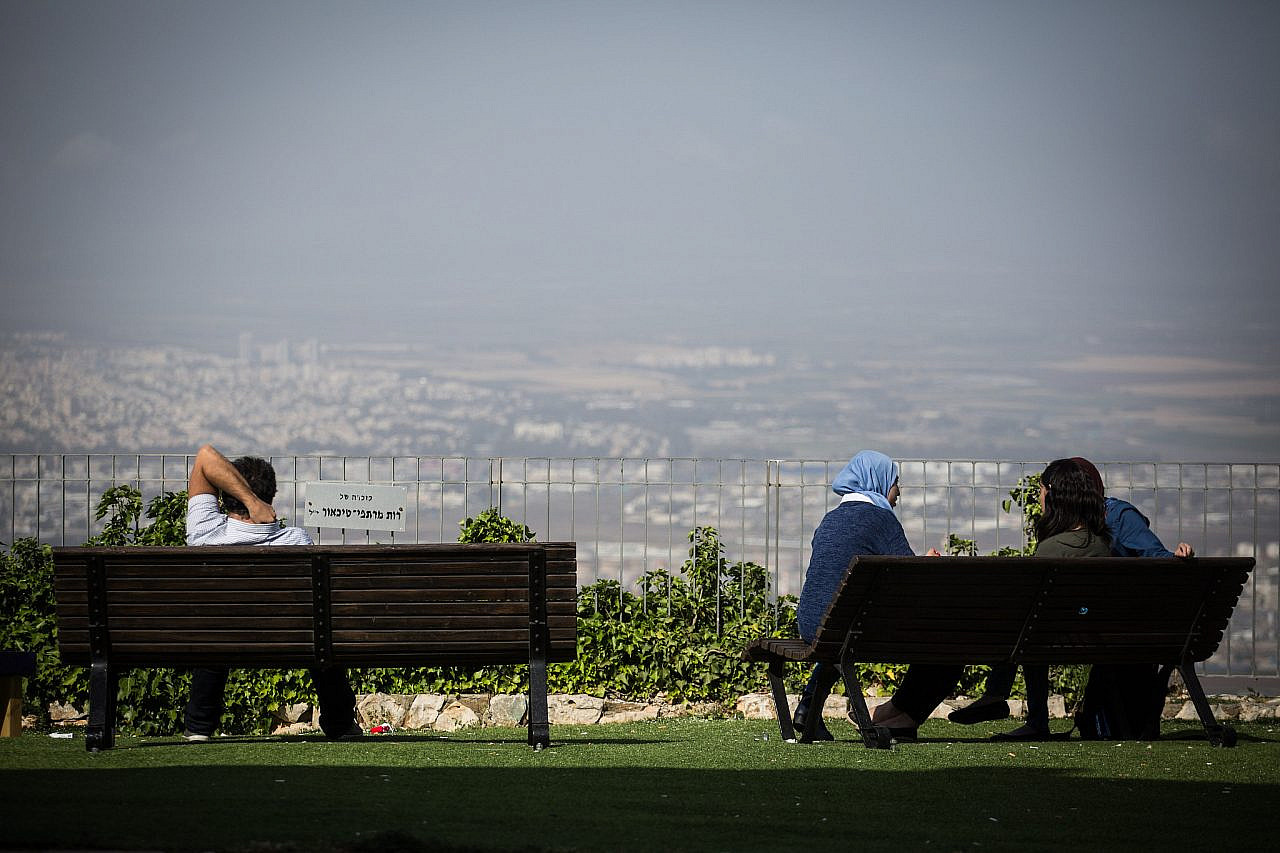
The situation has created a “crisis of trust” between professors and their students, Saabneh continued. “The most concerning aspect is that students began sending letters to the department head, threatening to boycott professors who signed the letter to the rector,” he said.
According to a recent report by Academia for Equality, at least six professors and junior faculty at Israeli academic institutions have faced disciplinary action since October 7 because of alleged incitement to terrorism or support for terrorist organizations. Some of them have been fired as a result.
One of the academics who has been targeted is Nadera Shalhoub-Kevorkian, a professor of criminology at the Hebrew University’s Faculty of Law and at Queen Mary University of London. Alongside 3,000 other academics and students around the world who specialize in the study of childhood, she signed a petition last month criticizing Israel’s attack on Palestinian children, and calling for an immediate ceasefire and an end to the “genocide” in Gaza.
A few days later, she received a letter from Asher Cohen, the Hebrew University’s president, in which he accused her of “incitement against the State of Israel,” threatened her with legal action, and urged her to resign. Cohen shared the letter with other staff at the university, and it gained traction on social media. Shalhoub-Kevorkian soon started receiving online threats.
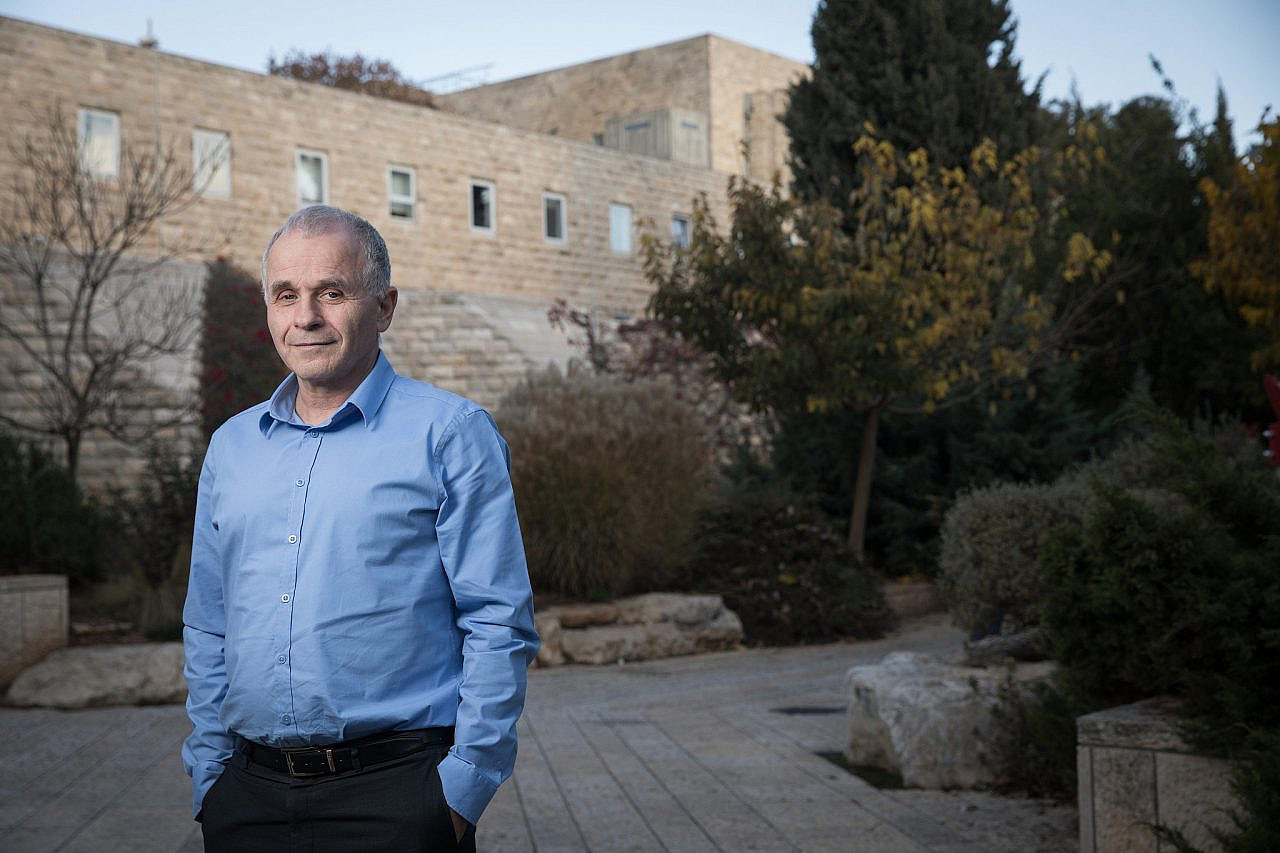
Her lawyer, Alaa Mahajna, accused Cohen of distorting the contents of the petition and said the university was potentially liable for having violated labor laws and inciting threats against a faculty member. He believes the university sought Shalhoub-Kevorkian’s resignation on the sole basis of her political views, which he sees as a dangerous and unprecedented overreach.
In response to a request for comment, the university’s director of international communications stated: “The [president’s] letter pretty much speaks for itself.” Shalhoub-Kevorkian has so far refused to tender her resignation.
Warda Sada, an educator and peace activist, has faced similar persecution. She was dismissed from her position at the Kaye Academic College of Education in Be’er Sheva after a student published a few of her social media posts before and after the war. All these posts, according to Sada, condemn violence from both sides and against the war and the killing of civilians. Kaye College is generally known for fostering a multicultural and multilingual learning environment, and prides itself on the diversity of its students and faculty, which mirrors the ethnic diversity of the Naqab/Negev region.
“As an educator with three decades of experience in the field and 28 years in academia, I never thought academic persecution would reach such extremes,” Sada told +972. “Our responsibility as academics is to foster critical thinking, encourage inquiry, and apply the theories we impart. We, as educators, aim to convey a message to the world, to empower fellow teachers to freely express their ideas.”
The purge has affected Jewish academics as well. Uri Horesh, a professor of Arabic linguistics at Achva Academic College near Ashdod, told +972 that on Oct. 15, while he was in New York, he received an email from the college with a complaint regarding a Facebook post of his that included the phrase “Free the Gaza ghetto.” Horesh initially shared the post a month earlier but reposted it after the start of the war.
“The college twisted the meaning of my post, claiming that I openly supported an act of terrorism,” Horesh said. “They accused me of tarnishing the college’s reputation.”
On Oct. 23, Horesh discovered that he no longer had access to the university’s online system and that his name had been removed from the college’s website; he had received no formal indication that he had been suspended. A week later, he was asked to attend a disciplinary hearing; he refused, stating that the process was illegitimate and that his personal political views were irrelevant to his employment. A few days later, he received a letter from the college confirming his termination and threatening to withhold compensation (though ultimately he was paid).
Horesh noted that many of his students were Palestinian citizens of Israel and that his dismissal wasn’t just a blow to him but also to them — a chilling message that discourages them from sharing their own views. Though he was scheduled to return to Israel on the day he received the first complaint, Horesh feared being arrested upon his arrival and so postponed his return indefinitely.
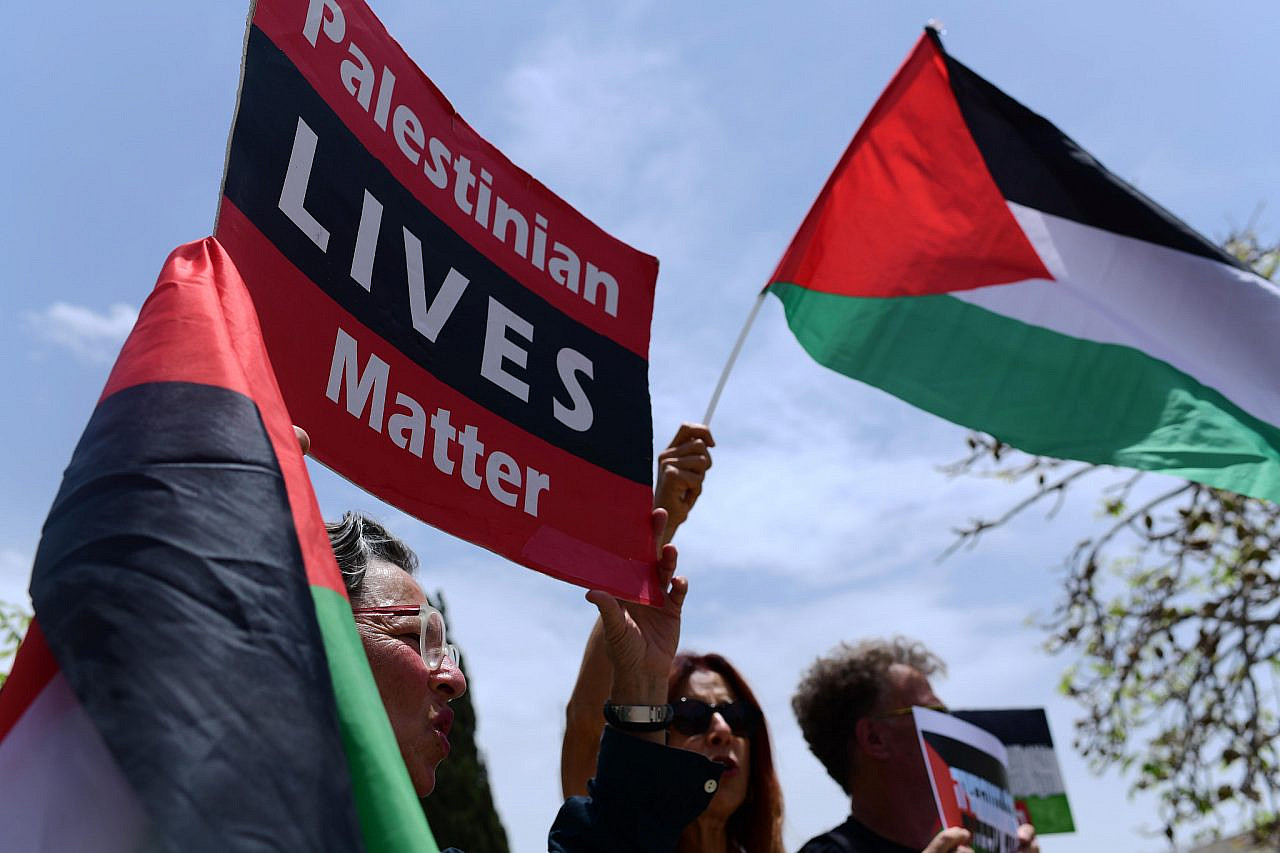
‘Collective blame placed on all Arabs’
The academic year in Israel was due to begin on Oct. 8, but the outbreak of war the day before meant that studies were postponed and repeatedly delayed. According to a recent statement by the Association of University Heads, the next target is to begin on Dec. 24, but doing so first requires a demobilization of army reservists.
As that date approaches, there are fears about what the atmosphere will be like, especially for Palestinian students and faculty. A recent survey found that 17 percent of Arab students polled expressed uncertainty or lack of intention to commence the year, primarily due to economic and security concerns.
Amid these heightened tensions, the Follow-Up Committee on Arab Education has voiced apprehensions about the upcoming academic year. On Nov. 27, the body penned a letter to Varda Ben Shaul, the director-general of the Council for Higher Education in Israel, highlighting the pressing mental, social, and economic challenges arising in this new reality, and calling for an immediate specialized program to support Arab students and foster their engagement in higher education. The letter also emphasized the need for collaboration with educational institutions and relevant government ministries to address issues of harassment and racism, and formally requested a meeting with Shaul to proactively address current and future challenges.
Most read on +972
On Nov. 25, the Union of Arab Students convened to strategize for the commencement of the academic year. Their agenda includes arranging meetings with university administrations, conducting face-to-face sessions with incoming first-year students to offer support amid forthcoming challenges, and revitalizing Arab students’ committees within universities and colleges.
A university’s role, even amid a crisis, is to be a space of reason and open dialogue. Yet in a stark departure from normal procedure, Israeli institutions have cracked down on critical expression since October 7, with Palestinians and left-wing Israeli Jews facing persecution.
“There’s a sense of collective blame placed on all Arabs within the university, including students who haven’t engaged in any posting [on social media],” Saabneh, from the University of Haifa, said. “This situation has escalated into a significant conflict on campus, creating an unhealthy environment for studying and discussions, which should ideally foster diverse viewpoints.”

